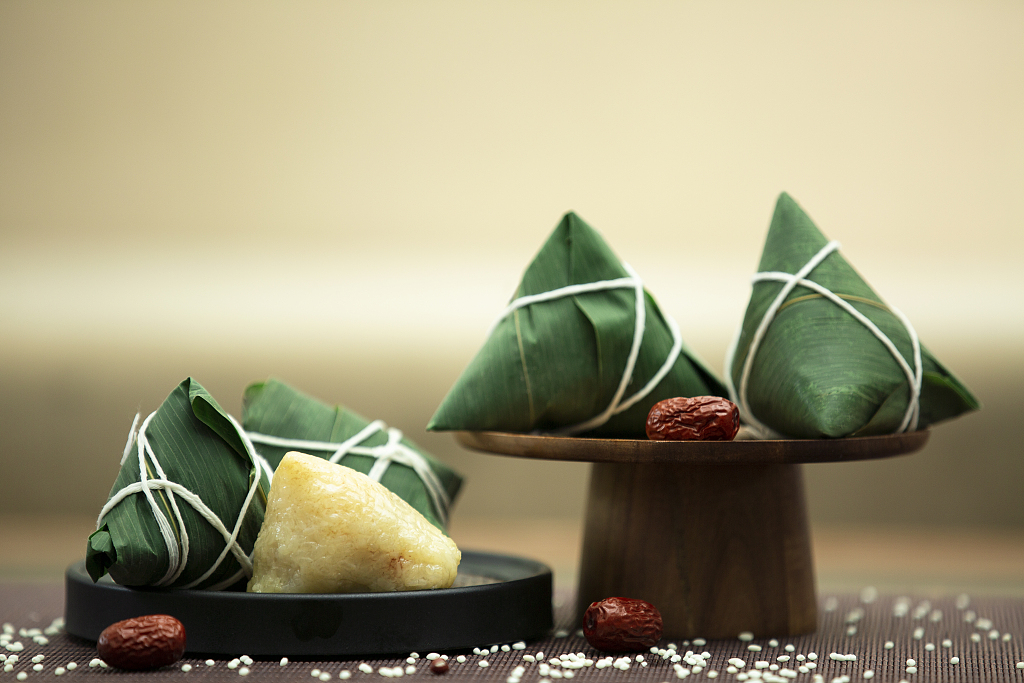Dragon Boat Festival 2025
Dragon Boat Festival Handmade Zongzi
Every year during the Dragon Boat Festival (5th day of the 5th lunar month), families across China gather around to wrap, steam, and savour zongzi (Chinese: 粽子; pinyin: zòngzi) - sticky rice dumplings wrapped in bamboo or reed leaves. More than just a delicious treat, these culinary masterpieces carry millennia-old stories and cultural significance.
Dumpling Legends
Zongzi originated over 2,000 years ago as a tribute to Qu Yuan (Chinese: 屈原; pinyin: qū yuán), a patriotic poet from the Chu Kingdom, a regional state in 722–481 BC. Heartbroken by the fall of his kingdom, Qu Yuan drowned himself in the Miluo River. Locals raced dragon boats to try to save him and toss rice dumplings into the water to protect his body from being eaten by fish. A different version of the legend honours Wu Zixu (Chinese: 伍子胥; pinyin: wǔ zǐxū), a loyal general of Wu Kingdom, another regional state in the same period who was revered as the pillar of the nation. However, he was forced to commit suicide and his body was disposed into the river. His spirit transformed into the God of the Waves. To commemorate his death, zongzi is offered to him to help ward off evil spirits.
Regional Variation of Taste and Style
From sweet to savory, zongzi reflects the culinary richness of China's regions:
- Northern China: Sweet red bean paste, jujubes, or sugar wrapped in glutinous rice.
- Southern China: Savory delights like Zhejiang’s Jiaxing (Chinese: 嘉兴; pinyin: jiā xīng) zongzi, stuffed with pork, salted duck egg yolk, and water chestnuts --- a UNESCO-recognized culinary treasure.
- Modern Twists: Chocolate, cheese, or even durian-flavoured zongzi cater to global tastes!
Zongzi Matters
Cultural Unity: Families bond over wrapping zongzi, passing down traditions through generations.
UNESCO Heritage: The Dragon Boat Festival, including zongzi rituals, is celebrated worldwide as intangible cultural heritage.
Economic Impact: Jiaxing produces 50% of China’s zongzi, generating $690 million annually --- a testament to its widespread popularity.
Try It Yourself!
When tasting a zongzi, you can appreciate its layers: the fragrant leaves, the sticky rice, and the surprise filling inside. Whether shared during festivals or enjoyed year-round, zongzi bridges past and present, and offers a heartfelt taste of Chinese tradition.
Do you want to learn how to paper-fold a “zongzi”? Please watch the video. Remember to share your “zongzi” creations with your family and friends! Let’s spread the love for this ancient delicacy.

(Image sourced from CGTN)
The University of Newcastle acknowledges the traditional custodians of the lands within our footprint areas: Awabakal, Darkinjung, Biripai, Worimi, Wonnarua, and Eora Nations. We also pay respect to the wisdom of our Elders past and present.